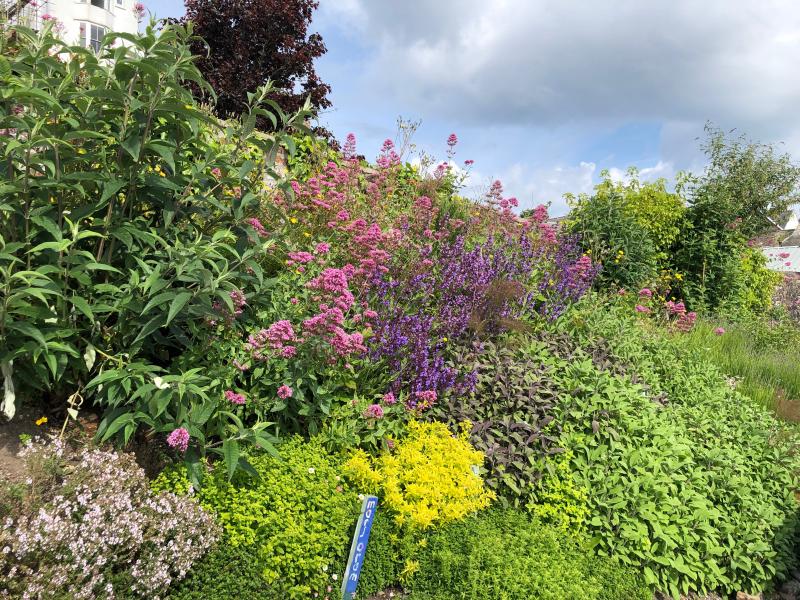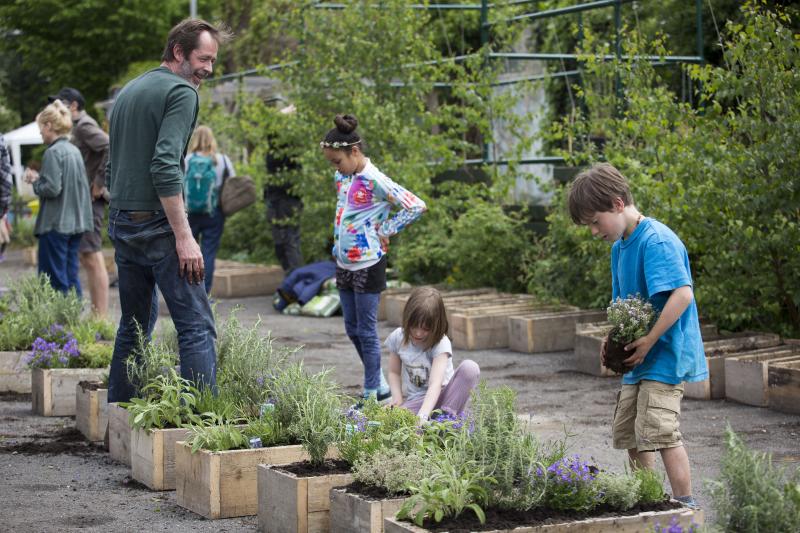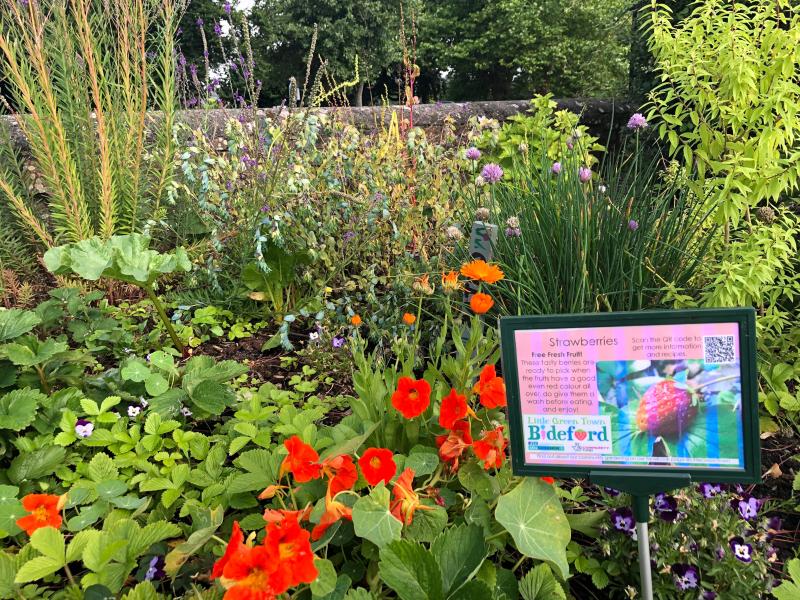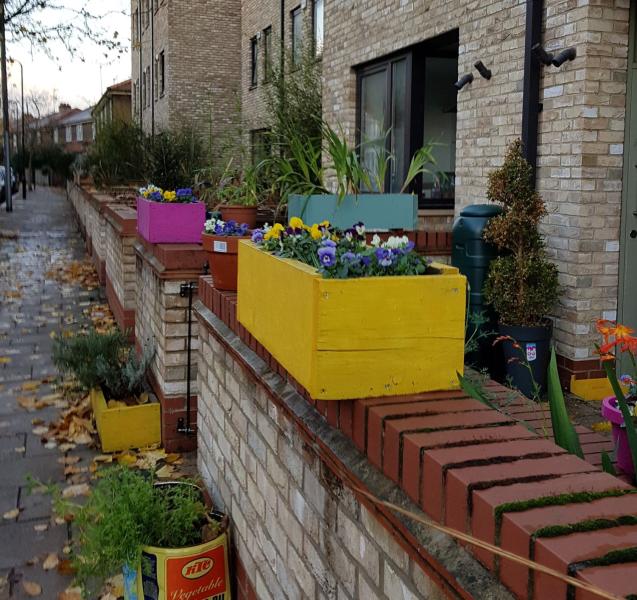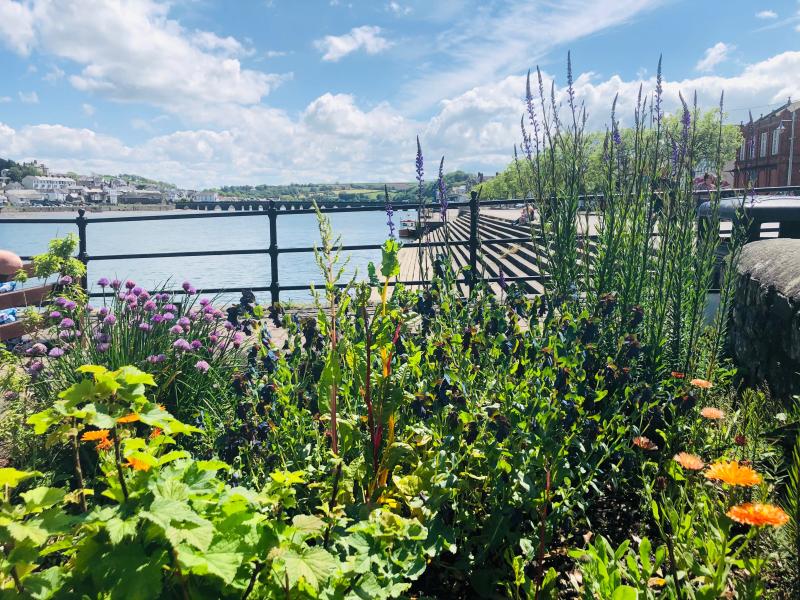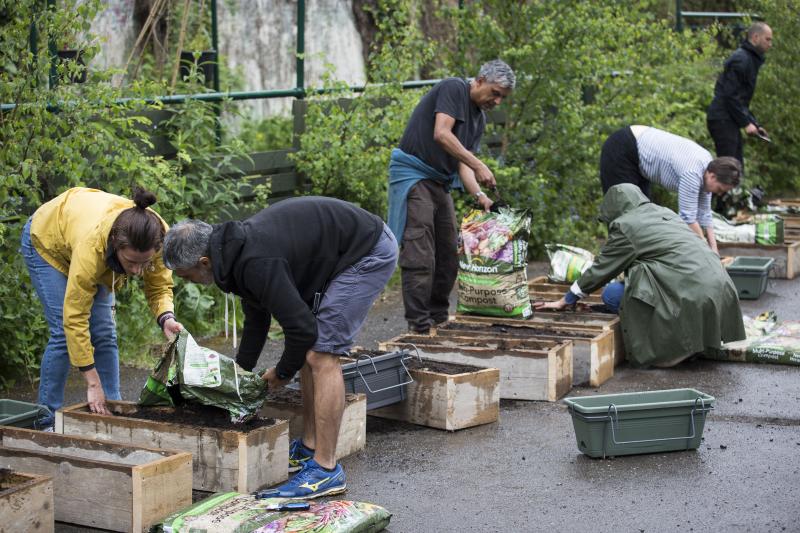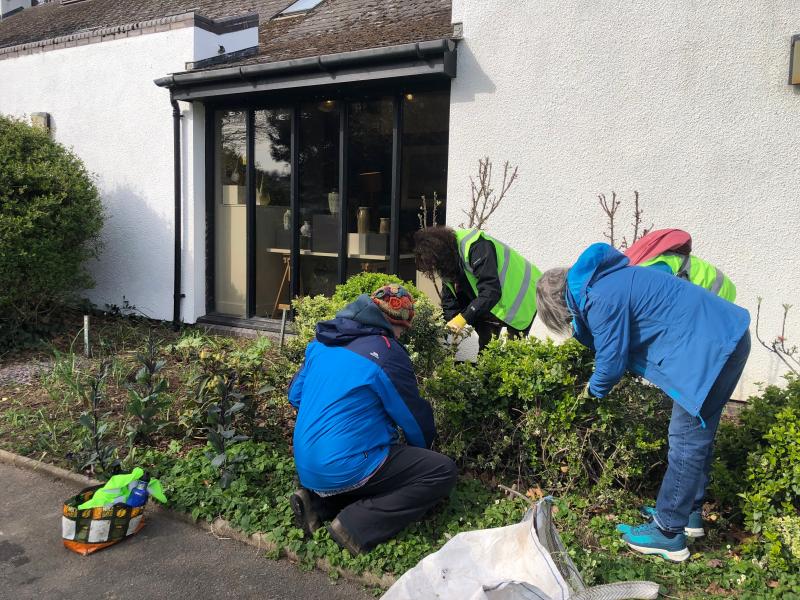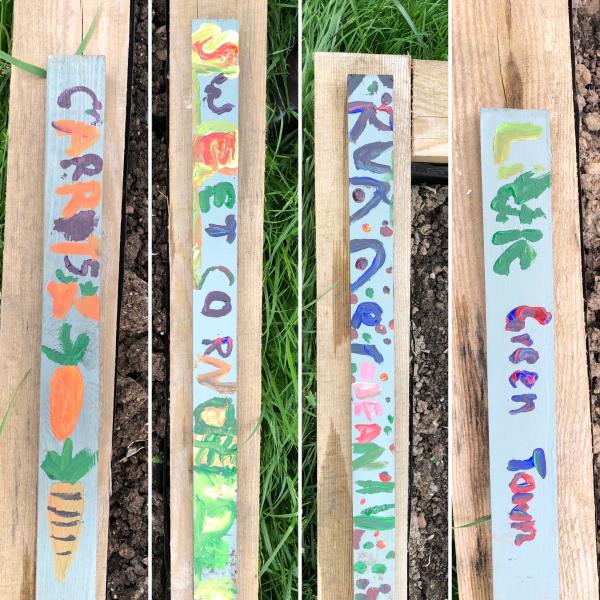Ciaran Biggins29 Jun 2022
When it was set up, the first 10xGreener project in East London grew from the insight that people want neighbourhoods that are healthier and greener but they often lack the time or skills to maintain new planting. Could a gardener working to green public spaces bring neighbours together and make a better-connected community through gardening? From the initial pilot, when Friends of the Earth crowdfunded a postcode gardener whose brief was to bring nature and wildlife back into some east London streets, we have supported three projects in Hackney, London, Bideford in Devon and Chester in Cheshire.
I joined the Experiments team in March with an exciting brief to develop recommendations on the future direction of Friends of The Earth’s 10x Greener and Postcode Gardener programme. On talking to the 3 postcode gardeners, I have gained some unexpected insights.
10 things I have learned about 10x Greener
Social outcomes are just as important as the environmental outcomes.
From the start, it’s been really clear that what people liked about the postcode gardener was that they created opportunities for people to meet their neighbours and do something practical together. Improving social connection and wellbeing were key outcomes from all three Postcode Gardener projects.
People struggling with depression have found the projects are a way of connecting with the community and improving their mental health. Chris Fuller from Bideford council summed this up nicely “a lot of 10xGreener is about people interacting and having a sense of purpose that makes Bideford feel like their town again - it’s not just about growing veg.”
We want to work with existing and future Postcode Gardeners to ensure that we can track and evidence the social and wellbeing outcomes of the projects.
Rural communities can still be disconnected from nature.
This surprised me. When I visited the public spaces that Lizz the Postcode Gardener and the local community in Bideford had been greening, I was struck that all the sites were primarily focused on growing food. I had wrongly assumed that a more rural community would be closer to knowing where food comes from and how to grow it - but part of the reason was because so many people locally don’t know how to grow veg or what it looks like. To me this reinforces the perception that the countryside is perceived as green and thriving, but people living locally don’t see great variety, either in crops or seasonality, and they don’t feel connected to the land dominated by industrial mono-crop cultivation.
Gardening is a great gateway into nature conservation and activism.
I loved hearing Kerry’s story about how she developed a wider interest in the environment from seeing 10xGreener in Chester and getting involved in community gardening. Kerry is now the coordinator of Chester Friends of the Earth. This is backed up by my own experience where gardening was a support to my wellbeing during a difficult life period and from my experience of gardening and connecting with nature, I started to care more deeply about wildlife and the natural world, making sure I do all I can to protect it.
Cross-pollination of impact.
Friends of the Earth encourages people to reduce pesticide use and let nature manage itself. I love how the community in London became so inspired by greening their streets and protecting nature and each other that they set up a campaign to persuade the council to make part of E5 Glyphosate free. Not only did they win but they are now lobbying to make all of Hackney Glyphosate free.
People add rather than subtract.
“Won’t people steal and vandalise what you do in a public space?” was a concern that people raised with the Postcode Gardener in Bideford. It’s heartening to hear that the team has often found that new plants have been added and donated when they return for their next gardening session. Lizz thinks it’s partly because it’s seen as a community effort rather than run by the the council. They feel a sense of connection and investment in the project.
The public value of a front garden.
Kate the E5 Postcode Gardener focused much of the community greening in Hackney on the cracks between private and public land. It was evident when I toured the streets in E5 that the front gardens and the public greening felt continuous, and the hope is that it creates a continuous green corridor for wildlife too. Recent studies have shown that having plants in front gardens is associated with lower signs of stress, contributing to the wellbeing of the community overall.
Gardening environmentally consciously can be difficult.
The Postcode Gardeners occasionally faced the challenge of demonstrating how to garden with nature but within a market where there is a slim supply of environmentally friendly products. For example, the majority of plants you buy in garden centres are still grown in peat-based compost, which Friends of the Earth has been challenging for decades. But Postcode Gardeners showcased how to save seeds and make compost so people could raise their own plants without resorting to peat.
Projects need more funding to cover real costs.
Coordinating and maintaining a community greening project demands time and resources and you need to build a network of volunteers to support a wide range of activities. Practical gardening sessions are only the start. The Postcode Gardeners do a phenomenal job of engaging the local community, planning activities and logistics, working on funding as well as encouraging practical gardening. We need to raise more funding for each Postcode Gardener project to reflect all the time needed to coordinate and run a community gardening project.
It’s hard to measure biodiversity changes.
We’ve had fantastic feedback from communities on how their area feels 10xGreener and how people have noticed more wildlife. We encouraged the projects to use I-Naturalist to help track wildlife but it’s been difficult to implement with changing volunteers. We’re exploring other tools and frameworks for tracking biodiversity for the next phase of the project.
The Postcode Gardener model offers a unique solution to community greening.
There are thousands of amazing examples of street and community greening happening across the country. But Friends of the Earth's key insight is still true that maintaining both the planting and the enthusiasm of volunteers on street greening projects is challenging. Lots of projects look great for the first couple of years but without dedicated resources, it is very difficult to keep it going let alone build and green more spaces.
That’s why I’m excited by the plans we’re developing for the next phase of the evolution of our Postcode Gardener programme. If you’re interested in learning more about our plans or partnering do get in touch.


